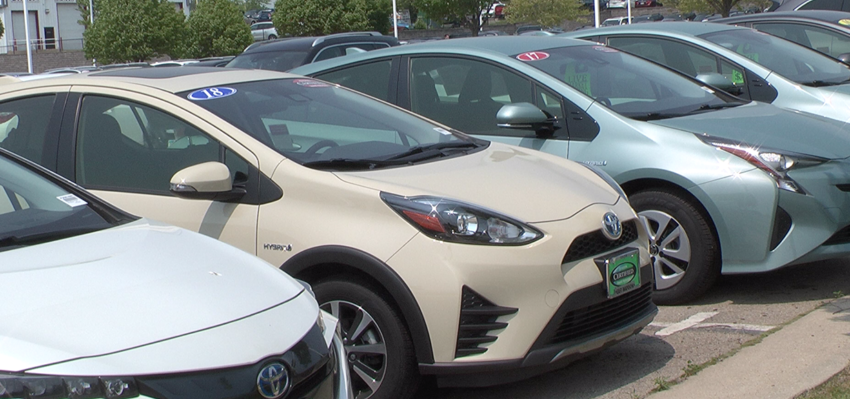
MacIver News Service | July 12, 2019
President Donald Trump received a letter from a coalition of 30 organizations, including the John K. MacIver Institute, urging him to continue in his effort to reform the Corporate Average Fuel Economy (CAFE) mandate, also referred to as CAFE Standards.
If unchanged, the ultimate impact of these policies will be higher vehicle prices and fewer choices for consumers. The Heritage Foundation estimates a new car in 2025 will cost at least $7,500 more if the Trump administration does not reform the mandate.
The CAFE Standards were introduced in 1975 as a way to reduce US dependence on foreign oil after the 1973 Oil Crisis.
Those standards didn’t really change until the Obama Administration came along. It drastically ramped up the fuel efficiency requirements for new vehicles. By 2025, the requirements will be double what they were when Obama took office.
Even more troubling, the administration gave the State of California a waiver that allowed it to create its own emissions standards. Those standards are more strict than the federal standards, which puts car manufacturers in a difficult position.
They can either create one class of vehicles for their markets in California and another class for the rest of the country, or simply create one class of vehicles that caters to the California standards. The auto industry, needless to say, is picking the latter option.
“To meet the mandate, automakers often have to sell smaller, less desirable cars at a discount, while increasing prices on larger, more popular cars, crossovers, SUVs, and trucks. This will get worse over time as the mandate becomes even more severe. In short, because of the mandate, those consumers who prefer trucks, SUVs, or crossovers pay more to subsidize those who buy smaller vehicles or electric vehicles,” the letter states.
In addition to revising the Obama-era changes, the coalition is asking the Trump administration to revoke California’s waiver, instead of allowing it to go rogue and set up its own de facto national mandate.
“If there is to be one national fuel standard, it makes more sense for that standard to be set by the federal government and not by one state government. Indeed, the enabling legislation for CAFE explicitly bars states from setting regulations relating to fuel economy. Reversing course now would leave California with the power to dictate regulations to the rest of the country,” the letter states.
If unchanged, the ultimate impact of these policies will be higher vehicle prices and fewer choices for consumers. The Heritage Foundation estimates a new car in 2025 will cost at least $7,500 more if the Trump administration does not reform the mandate.